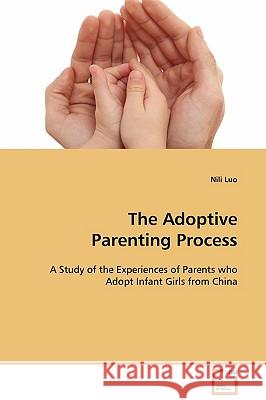The Adoptive Parenting Process » książka
The Adoptive Parenting Process
ISBN-13: 9783639090611 / Angielski / Miękka / 2008 / 116 str.
In 2003, there were 39,500 Chinese children living in the US who were adopted from China. While 113 were adopted from 1989-1991, in 2002, 5,900 Chinese children were adopted by US parents. Little is known about the scientific, psychological, or social issues surrounding the adopted children and their parents. The study used a qualitative approach to assess experiences of US parents who had adopted Chinese children. In this study, expected and unexpected results occurred. Analysis of the interviews yielded six major themes: 1) Parents' descriptions of their own childhood family structure and childhood experiences; 2) Parents' expectations, prior to and during the adoption experience, for the adoption to improve the family unit; 3) Changes in the parents' relationships after the adoption; 4) The adoptive parents' expectations of the adopted child; 5) The most challenging experiences of the adoptive parents; and 6) the meaning of the adoption for the parents.
In 2003, there were 39,500 Chinese children living in the US who were adopted from China. While 113 were adopted from 1989-1991, in 2002, 5,900 Chinese children were adopted by US parents. Little is known about the scientific, psychological, or social issues surrounding the adopted children and their parents. The study used a qualitative approach to assess experiences of US parents who had adopted Chinese children. In this study, expected and unexpected results occurred. Analysis of the interviews yielded six major themes: 1) Parents descriptions of their own childhood family structure and childhood experiences; 2) Parents expectations, prior to and during the adoption experience, for the adoption to improve the family unit; 3) Changes in the parents relationships after the adoption; 4) The adoptive parents expectations of the adopted child; 5) The most challenging experiences of the adoptive parents; and 6) the meaning of the adoption for the parents.











